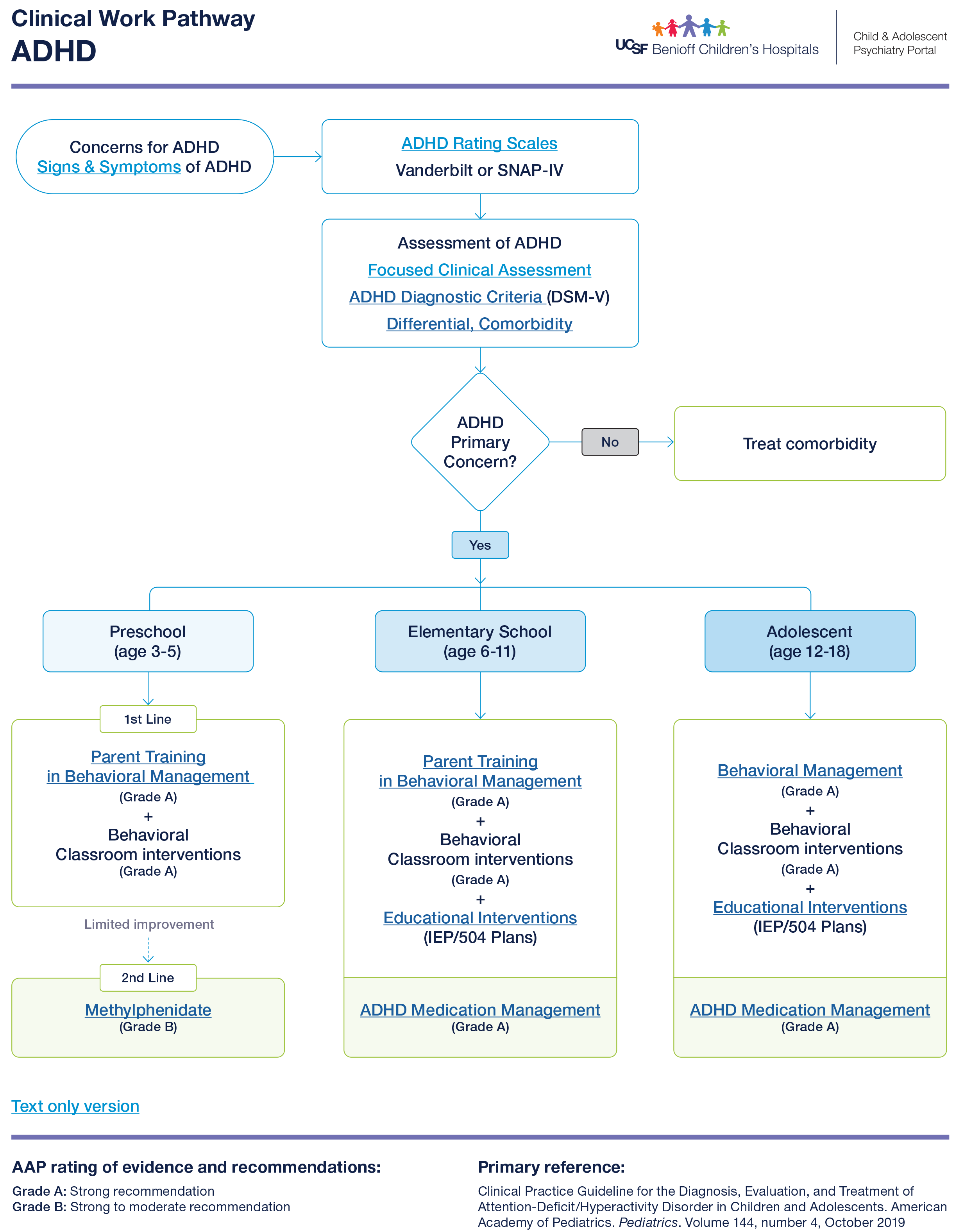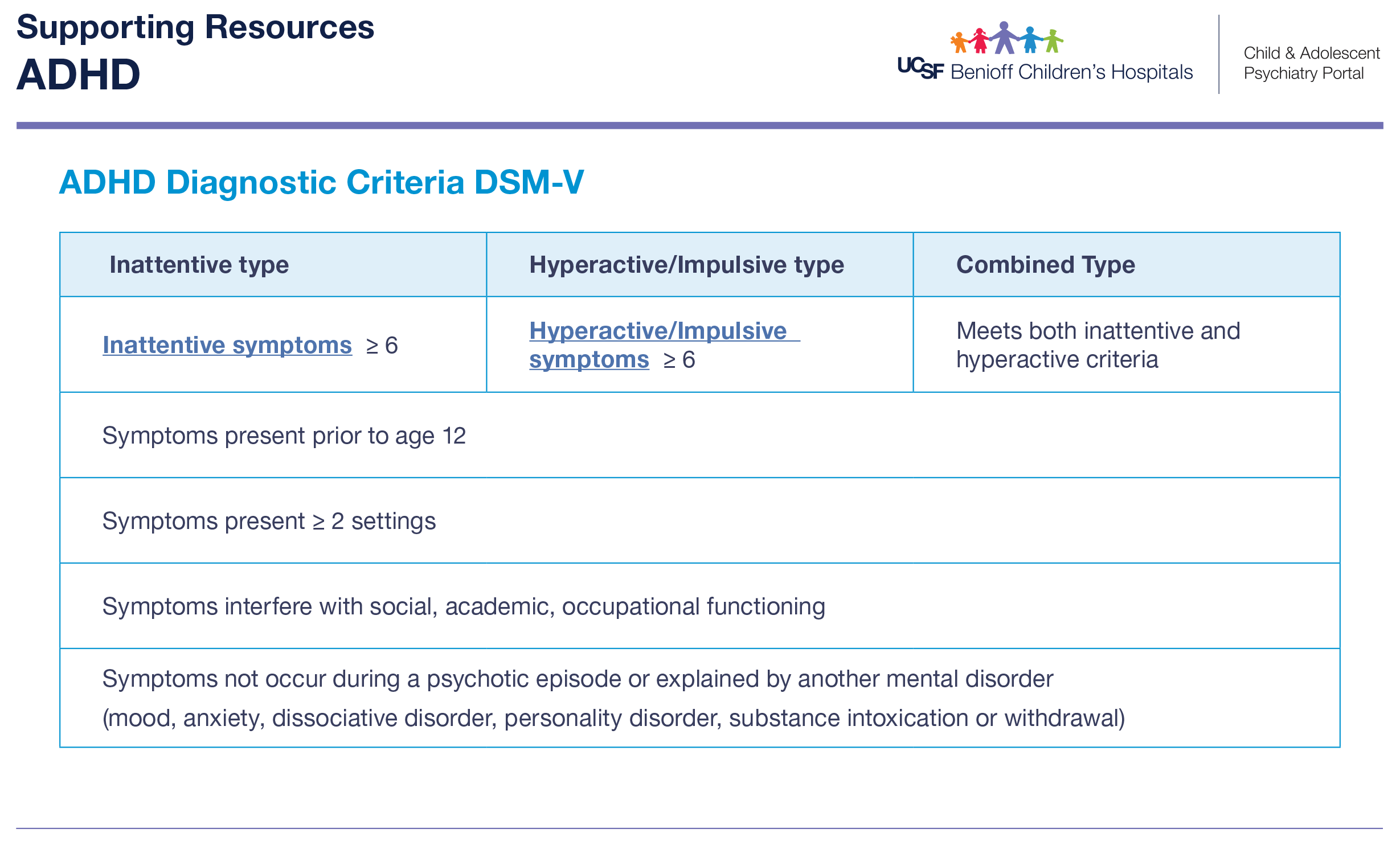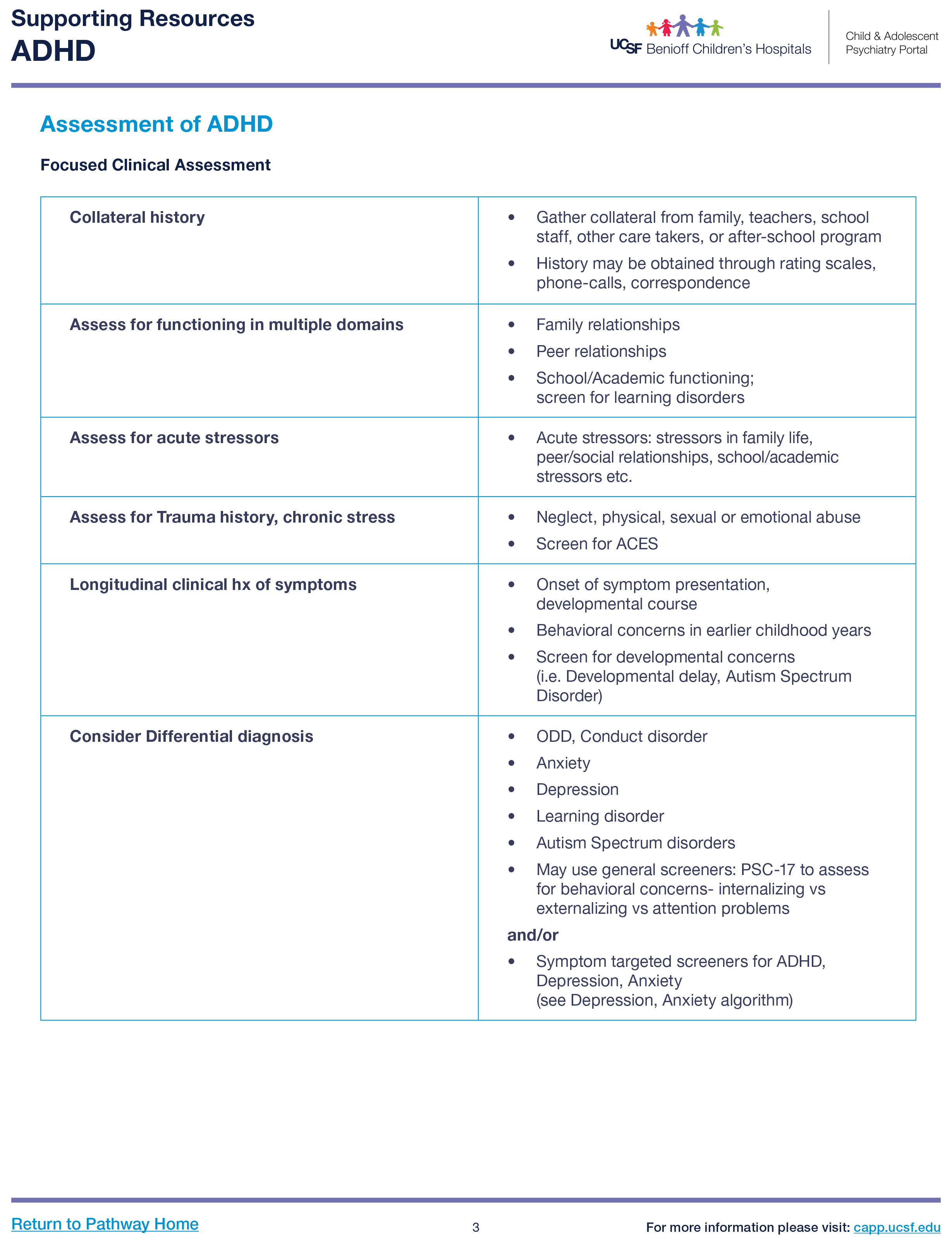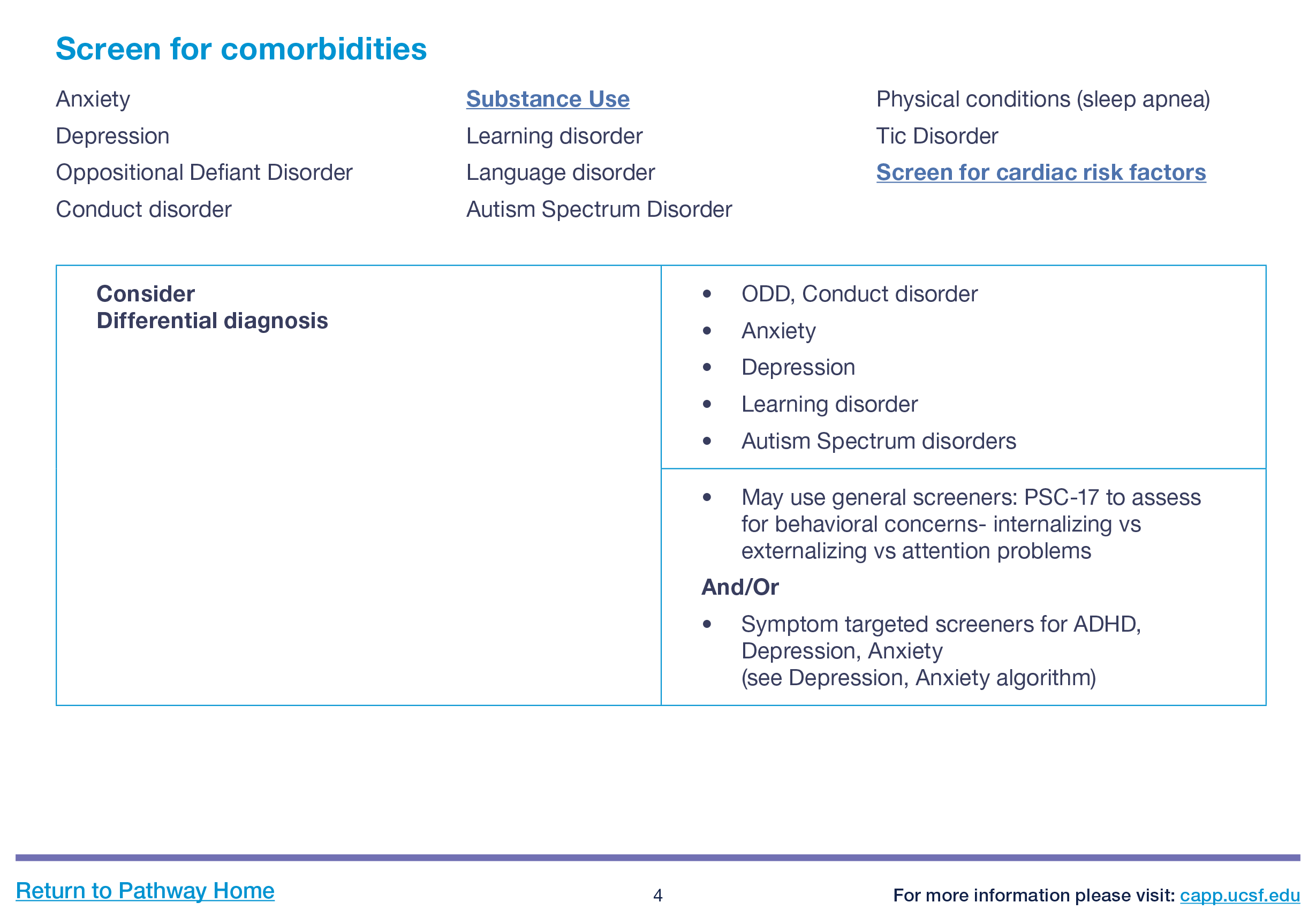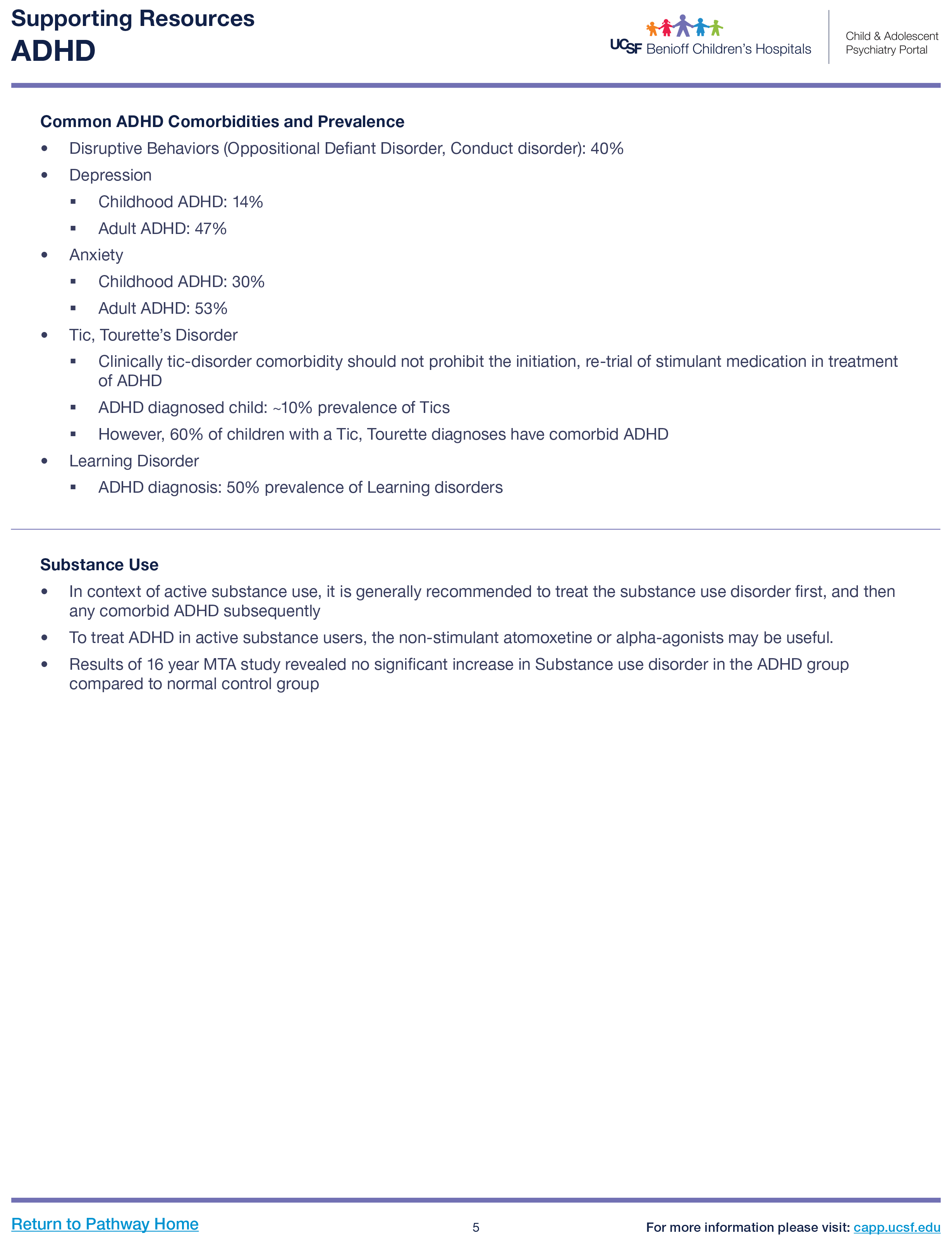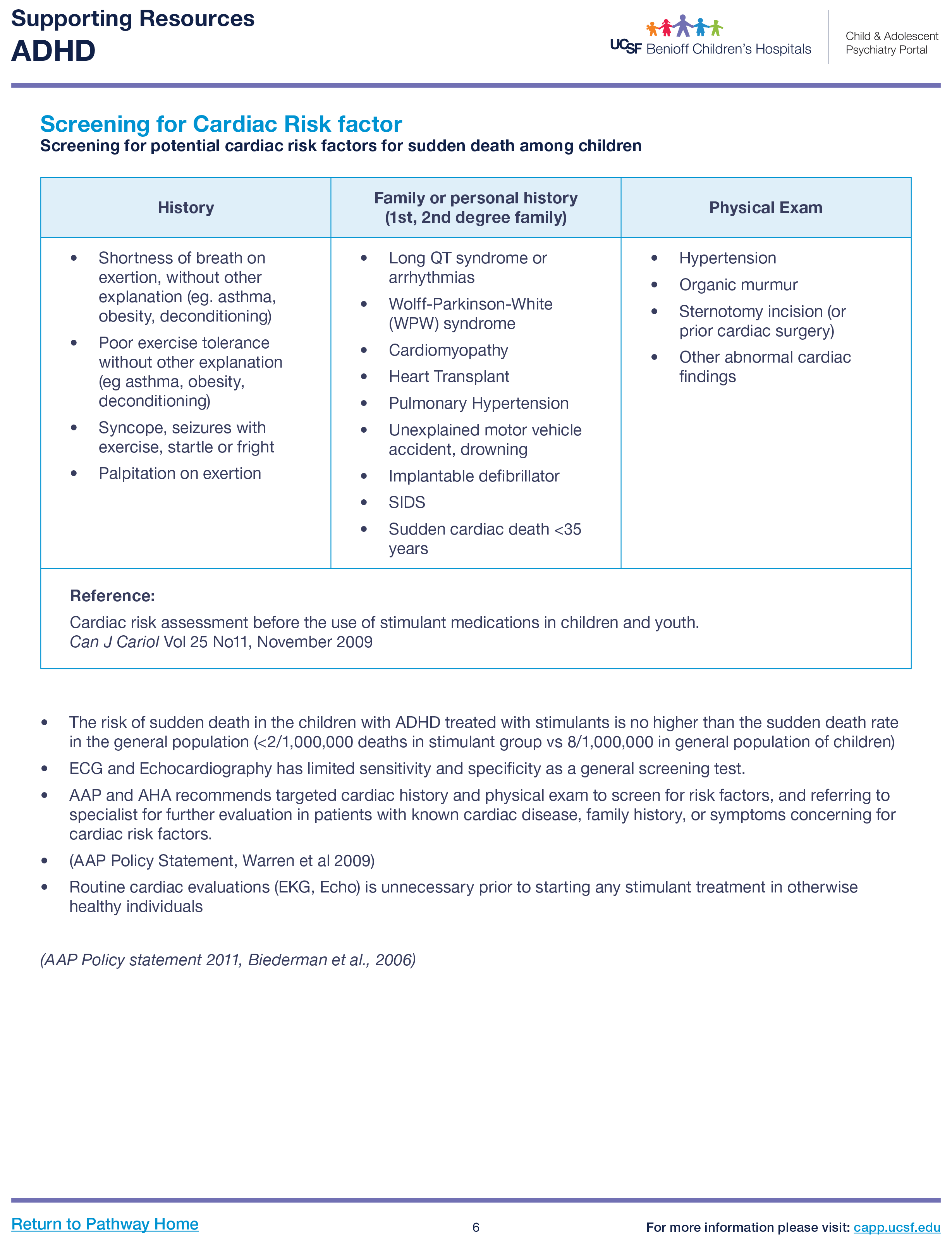-
Vanderbilt (ages 6-12 years)
-
SNAP-IV (Swanson, Nolan and Pelham Teacher and Parent rating scale, ages 6-18 years)
-
ASRS-V1.1 (Adult ADHD Self-Report Scale): English
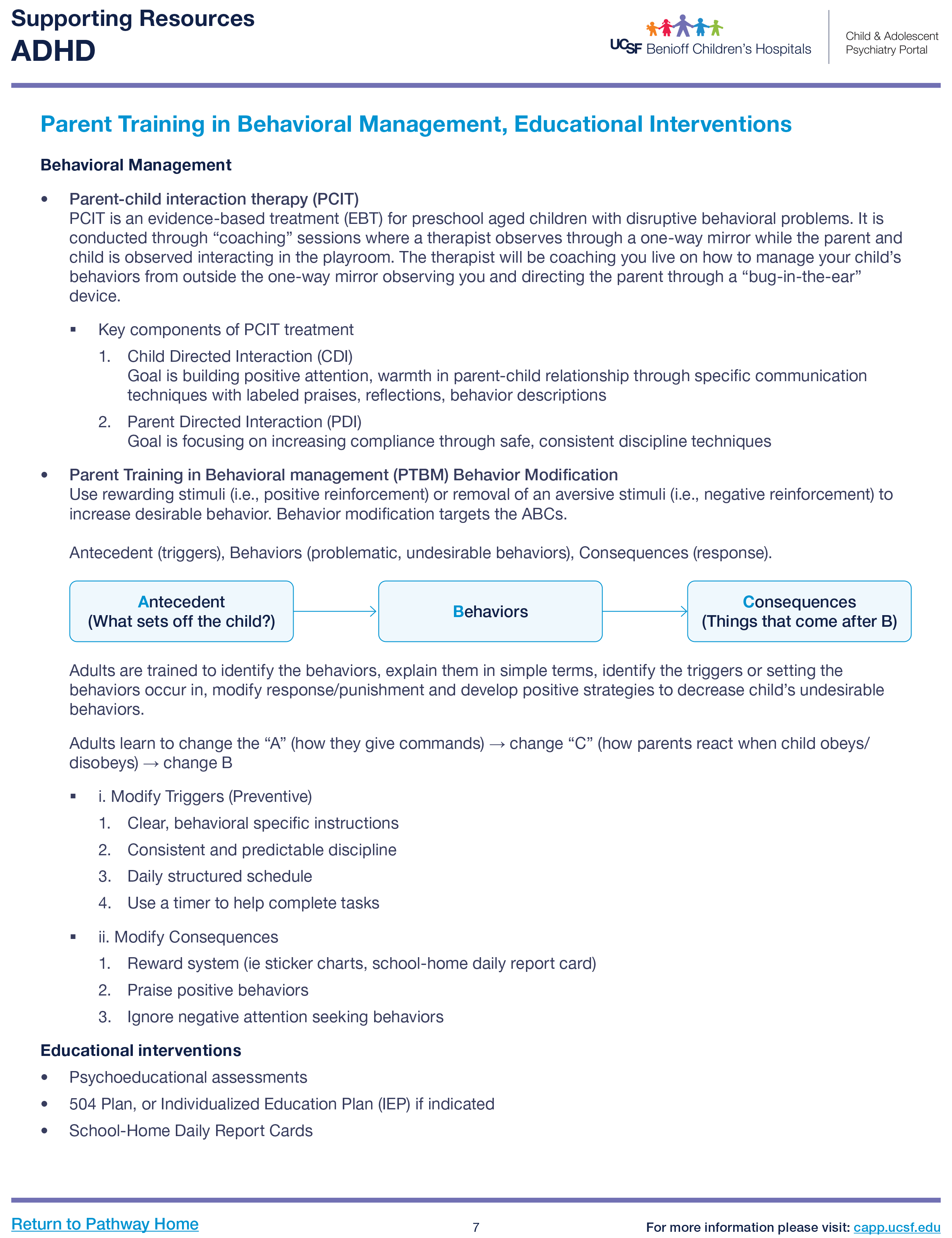
PCIT
PCIT is an evidence-based treatment (EBT) for preschool aged children with disruptive behavioral problems. It is conducted through “coaching” sessions where a therapist observes through a one-way mirror while the parent and child is observed interacting in the playroom. The therapist will be coaching you live on how to manage your child’s behaviors from outside the one-way mirror observing you and directing the parent through a “bug-in-the-ear” device.
Parent Training in Behavioral Management (PTBM)
Use rewarding stimuli (i.e., positive reinforcement) or removal of an aversive stimuli (i.e., negative reinforcement) to increase desirable behavior.
Adults are trained to identify the behaviors, explain them in simple terms, identify the triggers or setting the behaviors occur in, modify response/punishment, and develop positive strategies to decrease child’s undesirable behaviors.
Modify Triggers (Preventive)
Clear, behavioral specific instructions
Consistent and predictable discipline
Daily structured schedule
Use a timer to help complete tasks
Modify Consequences
Reward system (ie. sticker charts, school-home daily report card)
Praise positive behaviors
Ignore negative attention seeking behaviors
-
Psychoeducational assessments
-
504 Plan, or Individualized Education Plan (IEP) if indicated.
Clinical Pathway for ADHD
NICHQ ADHD Toolkit
Special Education Resources
DREDF (Disability Rights Education and Defense Fund)
Handouts
NICHQ ADHD Toolkit
Special Education Resources
DREDF (Disability Rights Education and Defense Fund)
Click here for resource: Parents’ Medication Guide for ADHD
Children and Adults with ADHD (CHADD)
Click here for resource: Understood

